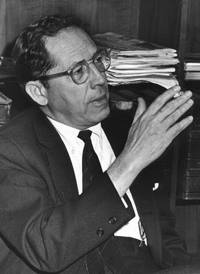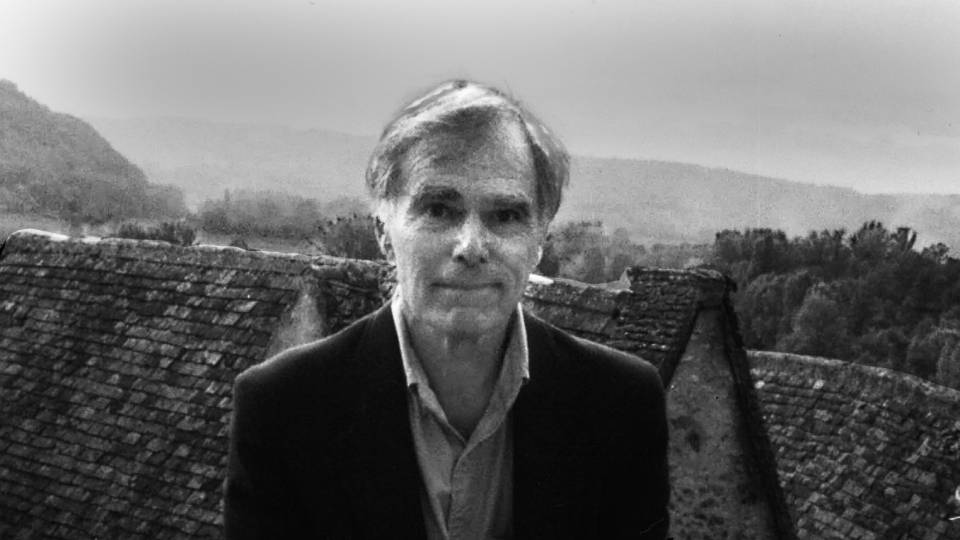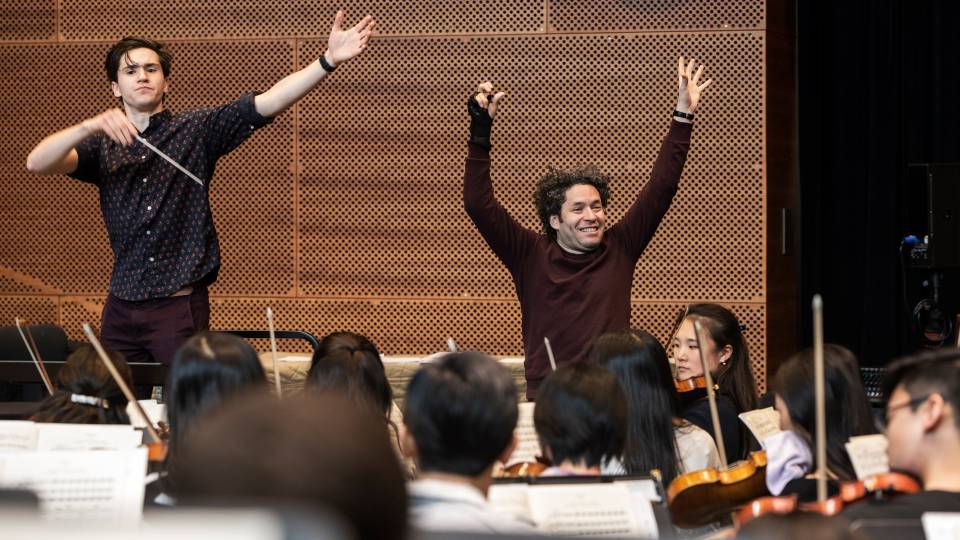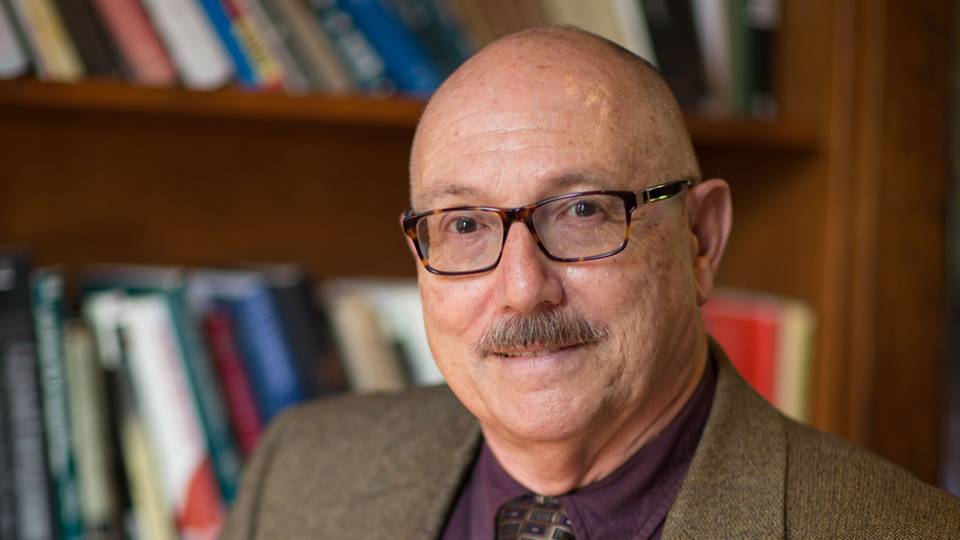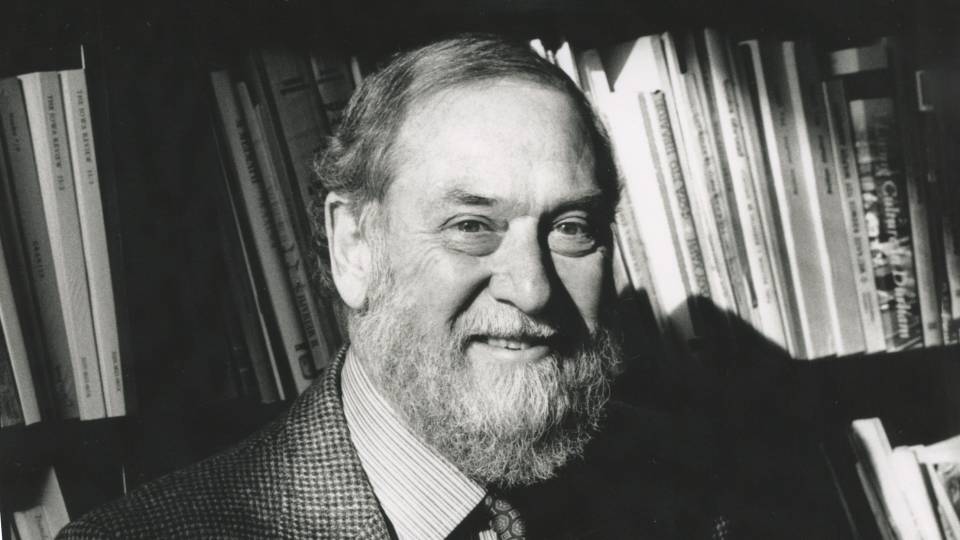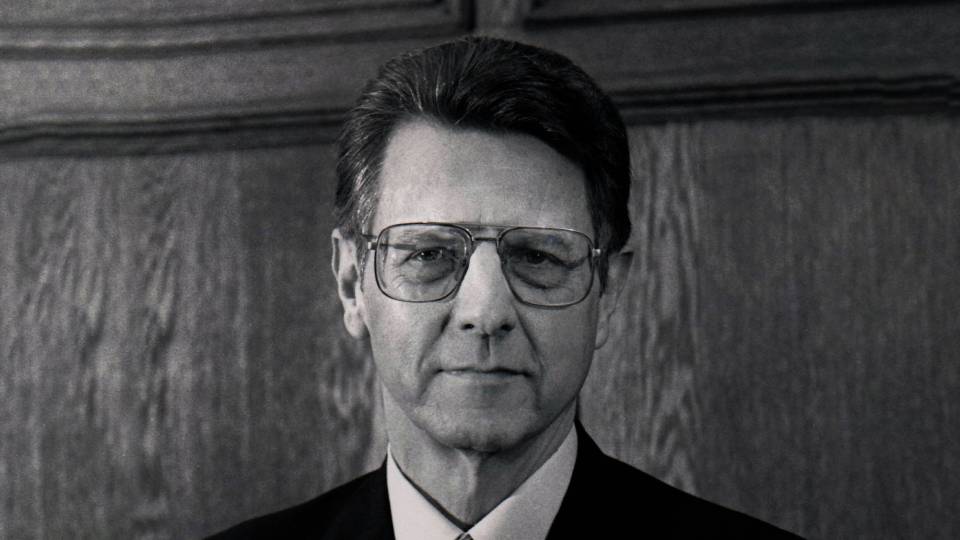A memorial service for Edmund King, a noted teacher, scholar and
translator of Spanish literature, is set for 11 a.m. Monday, Jan. 9, at
All Saints' Church in Princeton.
King, the Walter S. Carpenter Jr. Professor in the Language, Literature
and Civilization of Spain Emeritus, died Dec. 25 at his home in Laredo,
Texas, at age 91. After more than a half-century in Princeton, he had
moved to Texas a year ago following the death of his wife, Willard, in
November 2004.
Recruited to join the Princeton faculty in 1946, King was one of
several young scholars and students of Spanish drawn to the University
by the charismatic Spanish historian Américo Castro, who was expelled
from Spain by the Franco government. Castro's work and the writings of
his students and colleagues sparked a revolution in Spanish thought,
making Princeton a center of Spanish studies for most of the second
half of the 20th century.
King was charged by Castro to translate into English his masterwork,
"España en su historia." Published in King's translation as "The
Structure of Spanish History" by Princeton University Press in 1954,
the work was hailed as a major achievement. "King's translation put
into clear prose even the most difficult passages of Castro's text,"
said Ray Keck, a former student of King's who is now president of Texas
A&M International University.
Born in St. Louis, Mo., on Jan. 10, 1914, King grew up in Austin,
Texas. He earned three degrees from the University of Texas-Austin,
completing his Ph.D. in Spanish literature in 1948. He taught at Texas
from 1934 to 1936 and then at Mississippi State College until called
into the military service in 1941. He served in Europe through 1945,
rising to the rank of major.
Following the end of World War II, King returned to Austin and began
teaching at Texas until his call in 1946 to join the faculty of
Princeton. He served as chair of the Department of Romance Languages
and Literatures from 1966 to 1972 and was named the first incumbent of
the Carpenter professorship in 1976. When he retired in 1982, his
former student, Alban Forcione, was named to the professorship.
In addition to his work as the translator of Castro, King was a
recognized authority on 19th-century Spanish literature. "His book on
Spanish poet Gustavo Adolfo Bécquer, and his many short pieces on
Spanish Romanticism remain among the most respected writings on these
subjects," said Keck, who earned his bachelor's and doctoral degrees
from Princeton in 1969 and 1978, respectively.
King was one of the first scholars outside Spain to recognize the
unique talent of Gabriel Miró, perhaps the most challenging and
rewarding stylist in 20th-century Spanish fiction. In the early 1950s,
King traveled to Spain, befriended Miró's family and began a study of
Miró's work that would occupy him for the rest of his life. At the time
of his death, King was preparing for publication his translations into
English of Miró's two greatest novels, "Our Father Saint Daniel" and
"The Leper Bishop."
A longtime lover of music, King coached the Mississippi State Glee Club
during his time there, and was a member of the Princeton Society of
Musical Amateurs and the Princeton Madrigal Group. He also sang with
the choir at All Saints' Church.
In 1951, he married Willard Fahrenkamp, who became a faculty member at
Bryn Mawr College and published important studies of Golden Age Spanish
literature. After retirement, the Kings lived several years in Spain,
where they each served as resident director for the International
Institute in Madrid and continued their research and writing.
"From their home in Princeton and their classrooms in this country and
in Spain, the Kings educated and socialized an entire generation of
young scholars, inspiring in them twin devotions to Spanish culture and
to clear and elegant language," Keck said.
Edmund and Willard King had no children. He is survived by several
generations of noted Hispanists who were his students, including Alban
Forcione, James Maraniss, Inman Fox, Luis Fernández Cifuentes, Gordon
McNeer, Antonio Prieto, Lee Fontanella, Lane Kaufmann and Ray Keck. He
also is survived by his caregivers of recent years, especially William
Potter, Elizabeth Piccard and Rodolfo Orozco in Princeton and Patricia
and Ray Keck in Laredo.
Memorial contributions may be made to a fund in King's honor for the
benefit of the choir at All Saints’ Church, 16 All Saints' Road,
Princeton, NJ 08540.
